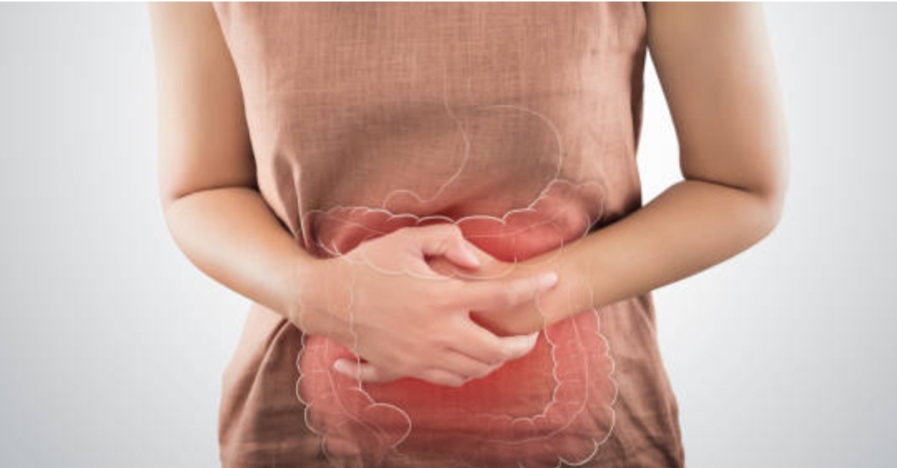The ketogenic (keto) diet has gained immense popularity in recent years, primarily for its weight loss benefits. But beyond shedding pounds, many people are exploring its potential effects on other aspects of health, including gut health. Digestive issues such as bloating, irritable bowel syndrome (IBS), and other gastrointestinal discomforts are common, and some believe that a low-carb, high-fat diet like keto might offer relief. This article will explore about Keto diet and Gut health, that how the keto diet impacts gut health, whether it can alleviate digestive issues, and what you need to know if you’re considering this dietary approach.
What is the Keto Diet?
The keto diet is a low-carb, high-fat eating plan that significantly reduces carbohydrate intake and replaces it with fat. The goal is to put your body in a state called ketosis, where it burns fat for fuel instead of carbohydrates. The typical macronutrient breakdown for a keto diet is approximately:
- 70-75% of calories from fat
- 20-25% of calories from protein
- 5-10% of calories from carbohydrates
By drastically cutting carbs, the body transitions from using glucose (derived from carbohydrates) as its primary energy source to using ketones, which are produced from the breakdown of fats.
The Gut Microbiome: An Overview
The gut microbiome consists of trillions of bacteria, viruses, fungi, and other microorganisms that reside in our digestive tract. These microbes play a crucial role in digestion, immunity, and overall health. A healthy gut microbiome is diverse and balanced, with a variety of beneficial bacteria that aid in:
- Breaking down food and absorbing nutrients
- Producing vitamins like B12 and K2
- Regulating the immune system
- Protecting against harmful bacteria and pathogens
An imbalance in gut bacteria, known as dysbiosis, can lead to digestive issues, inflammation, and even contribute to conditions like IBS, Crohn’s disease, and ulcerative colitis.
How Does the Keto Diet Affect the Gut?
1. Changes in Gut Bacteria Composition
One of the primary concerns with the keto diet is its impact on gut bacteria. Carbohydrates, especially those from fruits, vegetables, and whole grains, are rich in fiber. Fiber is essential for gut health as it feeds beneficial bacteria, helping them thrive and maintain a balanced microbiome. On the keto diet, however, fiber intake can be significantly reduced due to the restriction of these carb-rich foods.
Research Findings:
- Some studies suggest that a high-fat, low-carb diet like keto can decrease the diversity of gut bacteria, potentially leading to dysbiosis. A reduction in fiber can starve beneficial bacteria, causing a decline in their populations and possibly increasing the presence of harmful bacteria.
- However, other studies indicate that the keto diet may increase the abundance of certain bacteria associated with anti-inflammatory properties, which could be beneficial for people with inflammatory gut conditions.
2. Reduction in Inflammation
Inflammation is a common factor in many digestive disorders, including IBS, Crohn’s disease, and ulcerative colitis. The keto diet is known for its anti-inflammatory effects due to the reduction in sugar and refined carbohydrates, which are known to cause inflammation in the body.
Research Findings:
- The keto diet’s anti-inflammatory properties can positively impact the gut by reducing the overall inflammatory response, which may alleviate symptoms of digestive issues.
- A study found that patients with multiple sclerosis who followed a ketogenic diet experienced reduced gut inflammation, suggesting potential benefits for those with inflammatory gut conditions.
3. Improvement in Digestive Symptoms
Some people report improvements in digestive symptoms like bloating, gas, and abdominal pain when switching to a keto diet. This could be due to the reduction in fermentable carbs that can cause gas and bloating in some individuals.
Research Findings:
- For individuals with conditions like IBS, the keto diet may offer relief by reducing the intake of fermentable oligosaccharides, disaccharides, monosaccharides, and polyols (FODMAPs). These are short-chain carbohydrates that are poorly absorbed in the small intestine and can cause digestive discomfort.
4. Potential Downsides: Constipation
One of the most common side effects of the keto diet is constipation. The reduction in fiber intake, especially from whole grains, fruits, and certain vegetables, can slow down digestion and lead to constipation.
Tips to Combat Constipation on Keto:
- Increase Fiber Intake: Focus on keto-friendly fiber sources like leafy greens, avocados, chia seeds, and flaxseeds.
- Stay Hydrated: Drink plenty of water throughout the day to help keep your digestive system moving.
- Include Probiotics: Foods like kimchi, sauerkraut, and pickles, or a probiotic supplement, can help maintain a healthy balance of gut bacteria.
5. Gut-Brain Connection and Keto
The gut and brain are connected through the gut-brain axis, a complex communication network that links the emotional and cognitive centers of the brain with peripheral intestinal functions. Emerging research suggests that diet can influence this axis and potentially impact mental health.
Research Findings:
- Some studies suggest that the keto diet may have a positive effect on mental health, which is closely linked to gut health. Improvements in mood, anxiety, and cognitive function have been noted, which may be partially attributed to the diet’s impact on gut bacteria and inflammation.
Keto Diet for Specific Digestive Issues
Irritable Bowel Syndrome (IBS)
IBS is a common condition characterized by symptoms like abdominal pain, bloating, and altered bowel habits. The keto diet may help manage IBS symptoms by reducing the intake of fermentable carbs that contribute to gas and bloating. However, it’s essential to note that IBS is highly individual, and what works for one person may not work for another.
Inflammatory Bowel Disease (IBD)
For those with IBD, which includes Crohn’s disease and ulcerative colitis, the keto diet’s anti-inflammatory effects could be beneficial. However, the lack of fiber and the potential reduction in gut bacteria diversity could also pose risks. It is crucial for individuals with IBD to consult with a healthcare provider before making significant dietary changes.
Small Intestinal Bacterial Overgrowth (SIBO)
SIBO occurs when there is an abnormal increase in the population of bacteria in the small intestine. Since SIBO is often fueled by carbohydrates, a low-carb diet like keto may help reduce bacterial overgrowth and alleviate symptoms.
How to Follow Keto for Gut Health
If you’re considering the keto diet to improve gut health, here are some tips to ensure you’re supporting your digestive system:
1. Prioritize Fiber-Rich, Low-Carb Foods
Include high-fiber, low-carb vegetables such as spinach, kale, broccoli, and cauliflower. These foods can help maintain some level of fiber intake, which is crucial for gut health.
2. Include Fermented Foods
Fermented foods like yogurt, kefir, kimchi, and sauerkraut are excellent for gut health as they provide beneficial probiotics that support a balanced microbiome.
3. Stay Hydrated
Adequate water intake is essential for overall health and can help mitigate some digestive issues like constipation commonly associated with the keto diet.
4. Consider a Probiotic Supplement
A high-quality probiotic supplement can help maintain gut bacteria balance, especially if your diet is lacking in fiber-rich foods that naturally support beneficial bacteria.
5. Monitor Your Body’s Response
Pay close attention to how your body responds to the keto diet. Digestive symptoms can vary, and it’s essential to make adjustments as needed or consult with a healthcare provider for personalized guidance.
Conclusion
The relationship between the keto diet and gut health is complex and can vary greatly from person to person. While some individuals may experience relief from digestive issues like bloating and inflammation, others might struggle with side effects such as constipation and reduced gut bacteria diversity. It’s crucial to approach the keto diet with an understanding of your body’s unique needs and to consult with a healthcare professional, especially if you have existing gut health conditions.
Ultimately, the keto diet can offer potential benefits for gut health, particularly in reducing inflammation and certain digestive symptoms. However, maintaining a balanced intake of fiber, staying hydrated, and considering probiotics are essential steps to support gut health while on a low-carb diet.


